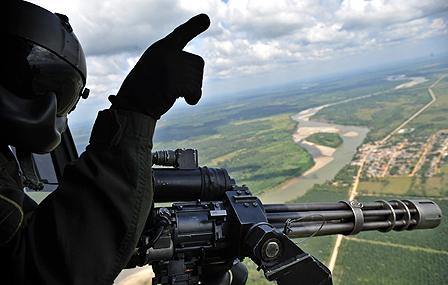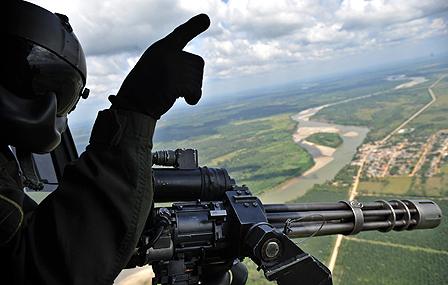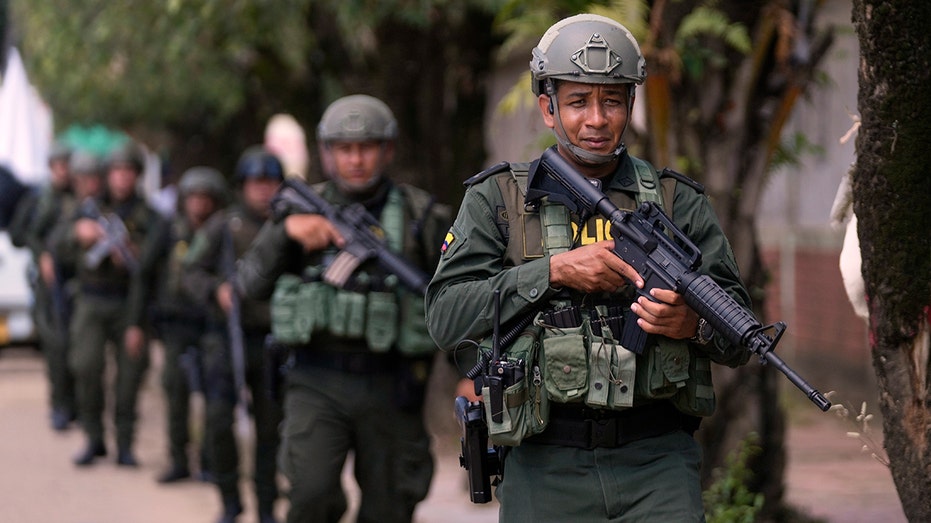
Colombian President Enacts Emergency Measures amid Escalating Violence
By [Your Name] | [Date]
Background on the Catatumbo Conflict
Recent weeks have seen an alarming spike in violence in the Catatumbo region, a known stronghold for armed groups in Colombia’s northeastern territory, near the Venezuelan border. President Gustavo Petro has taken the rare step of implementing emergency measures to counteract the escalating crisis, reflecting the dire situation that authorities face in controlling the rampant violence in this coca-producing area.
The National Liberation Army (ELN), alongside dissident factions of the Revolutionary Armed Forces of Colombia (FARC), has intensified its activities, resulting in over 80 confirmed deaths and the displacement of approximately 36,000 residents within a short span. Such gruesome statistics have compelled the government to rethink its security strategy and take swift action.
Emergency Decree and Its Implications
On [Insert Date], President Petro issued a decree granting him special powers for the next 90 days, enabling him to impose curfews, implement traffic restrictions, and mobilize extraordinary police actions without the typical limitations imposed by civil rights laws or legislative approvals. This unprecedented move marks the first activation of such extensive authority by a Colombian leader in more than a decade, underscoring the gravity of the situation in Catatumbo.
While Petro’s decision is backed by the urgency to restore order, it has invited scrutiny and criticism. Some opposition politicians argue that these measures infringe on constitutional rights. Conversely, activists and local community leaders have expressed cautious hope that the intervention might catalyze much-needed investment in infrastructure, healthcare, and educational services that the region has been decidedly lacking.
Local Perspectives on the Violence
Local residents have borne the brunt of the violence for years. Jaime Botero, an activist from the town of Tibu, brings attention to the root issues, asserting that the rise of armed groups is directly tied to systemic neglect by previous administrations. He stated, “Why are the armed groups here? Because the last government hasn’t made investments. They’ve abandoned us.” His reflections echo sentiments among many who have felt isolated and forgotten by the state.
With a fragile humanitarian situation unfolding, the need for governmental action beyond just security measures is evident. Activists hope that Petro’s approach will not only focus on military tactics but also on long-lasting solutions that address underlying social and economic disparities.
The Reaction from the Government
In addition to the emergency measures, President Petro has also reactivated arrest warrants for 31 key ELN leaders while suspending ongoing peace negotiations with the group. The ELN has maintained a presence in Catatumbo for over six decades and has been a central figure in Colombia’s complex landscape of conflict. Those negotiations, which have struggled to gain traction since Petro took office in 2022, reflect the challenges of reconciling governmental authority with entrenched insurgent groups.
Simultaneously, the ELN, historically influential in the region, faces territorial losses as splinter factions of FARC continue to assert their presence, complicating peace initiatives further. The inter-dynamics between these armed factions pose a challenge to any attempts to stabilize the area.
The Regional Impact and International Dynamics
The violence in Catatumbo reverberates beyond Colombian borders, particularly impacting Venezuela, where many fleeing residents are seeking refuge. Reports suggest that the fate of ELN negotiators remains uncertain, with locations speculated to be across the border in Venezuela—a nation which has played a contentious role in Petro’s peace initiatives. Tensions and complexity arise as Petro grapples with not only domestic violence but also regional geopolitical factors.
Previous peace negotiations between the Colombian government and ELN have drawn international attention, and Cuba, which has facilitated dialogue in the past, has dismissed reports regarding hosting ELN negotiators. This situational ambiguity raises questions about the fate of peace talks and the pathways forward.
A Path Forward: Will Emergency Measures Succeed?
As Colombia faces its ongoing legacy of violence and conflict, President Petro’s emergency measures highlight the urgent need for a multifaceted response. While the implementation of curfews and restrictions seeks to restore order, experts warn that without addressing the deeper socioeconomic issues driving the conflict, such tactics may offer only a temporary fix.
The experiences of communities like those in Catatumbo underscore the necessity for a strategy that combines immediate security with long-term investment in development. Local leaders and activists are hopeful that if made effective, this intervention might serve as a turning point, fostering peace and stability in a region long marked by conflict.
This HTML format presents an expanded and journalistic-style rendition of the provided content, maintaining relevant headings and sections relevant for a comprehensive online article.


















